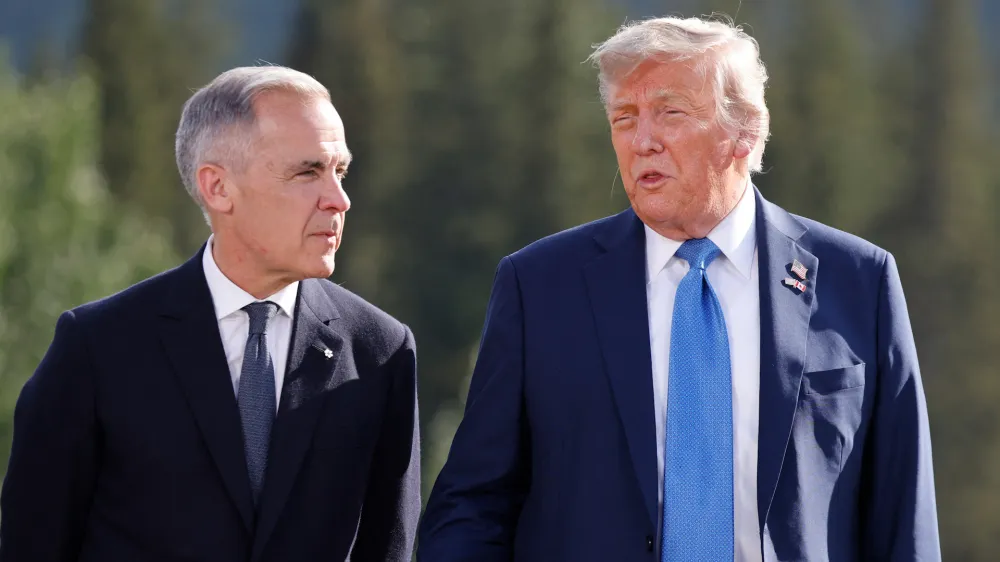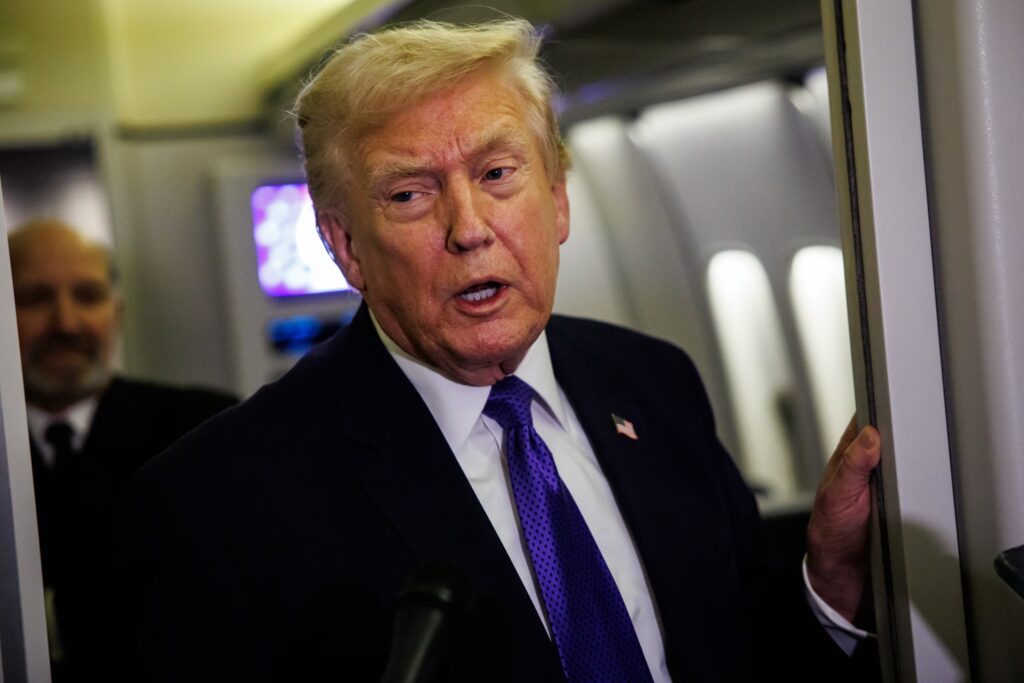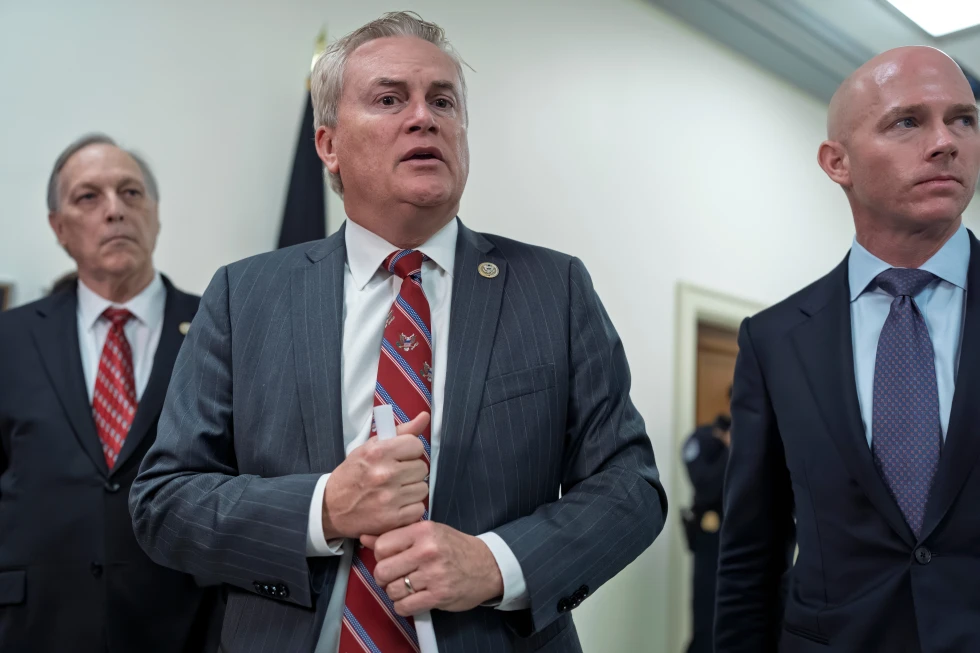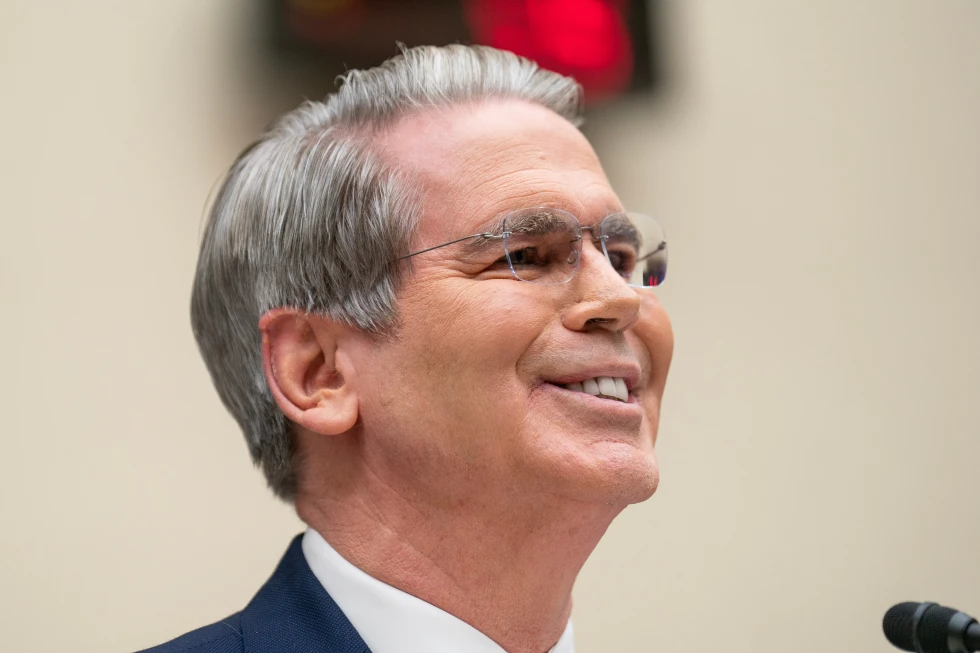Trump Raises Tariffs on Canadian Imports to 35%

WASHINGTON — President Donald Trump has announced a dramatic increase in tariffs on Canadian imports, raising the rate to 35% and deepening tensions between the two North American allies. The decision, outlined in a letter to Canadian Prime Minister Mark Carney, follows months of economic threats from the White House.
Trump first imposed a 25% tariff in March, claiming it would pressure Canada to curb fentanyl trafficking. Now, despite limited evidence of large-scale fentanyl flows from Canada, the U.S. president has escalated the trade action, citing “tariff and non-tariff barriers” as further justification.
“I must mention that the flow of fentanyl is hardly the only challenge we have with Canada,” Trump wrote, adding that he would not back down from the new measures.
Tariffs Set to Take Effect August 1
The 35% tariff, effective August 1, has already begun to worry investors. Markets showed signs of unease Friday morning, with U.S. stock futures sliding in response to Trump’s sweeping wave of tariff letters sent to 23 countries this week.
Canadian officials pushed back swiftly. Prime Minister Carney defended Canada’s efforts to tackle fentanyl and emphasized progress in ongoing trade negotiations.
“Canada has made vital progress to stop the scourge of fentanyl,” Carney said in a statement. “We will continue to stand up for our workers and businesses.”
Canada Pushes for Independence in Trade Strategy
Since taking office in April, Carney has distanced Canada from its traditional reliance on the U.S. He’s sought deeper ties with the European Union and the U.K., declaring Canada a reliable economic partner.
On Thursday, Carney posted a photo with British Prime Minister Keir Starmer, stating: “The world is turning to reliable economic partners like Canada.” His remarks hinted at growing frustration with the unpredictability of Trump’s trade policies.
Although Carney visited the White House in May, Trump dismissed any possibility of lifting tariffs. “There’s nothing he could say that would change my mind,” Trump told reporters.
Tariff Tensions May Derail Trade Talks
Experts say the tariff hike will complicate future U.S.-Canada negotiations. Daniel Beland, a political scientist at McGill University, said Trump’s threats have made it difficult for Canadian officials to view him as a credible negotiating partner.
“Trump doesn’t appear to be a reliable and truthful interlocutor,” Beland said. “That makes a new trade deal much harder to reach.”
Trump’s decision also coincided with his imposition of a 50% tariff on Brazil, citing former President Jair Bolsonaro’s criminal trial. Like Canada, Brazil now faces mounting economic pressure from Washington.
Global Reactions Condemn Trump’s Moves
China, Brazil’s largest trade partner, sharply criticized Trump’s tariff spree. “Tariffs should not be used as a tool for coercion, bullying, and interference,” said Chinese Foreign Ministry spokesman Mao Ning.
Trump’s escalating tariff campaign appears to undermine his own efforts to isolate China, while alienating allies across the globe. In recent months, he has finalized deals with the U.K. and Vietnam and adjusted tariffs on China after intense negotiations.
However, Trump recently halted trade talks with Canada over its proposed digital services tax on U.S. tech firms — only resuming dialogue after Carney canceled the measure.
The 2020 United States-Mexico-Canada Agreement (USMCA) currently shields some goods from tariffs, but a full review is scheduled for 2026, raising the stakes for both economies.
For author: Staff News
Courtesy of: Forbes
Source: AP News
: 318







